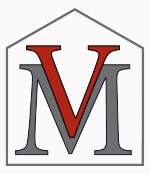FHA vs. Regular mortgage loan? First time home buyer.
 Steven Ceceri (123LoanYes)
Steven Ceceri (123LoanYes)
#12 ranked lender in Rhode Island - 723 contributions
Hi Suzy! The terms "First Time Homebuyer" actually means either 1) you have not owned a home before, or 2) you have not owned a primary residence in the last 3 years. The loans programs in the market are basically all priced the same for existing homeowner's or new homeowner. Understanding your goals and needs and then helping you understand the various options that will be suit you is what I would offer. You should find a Trusted Mortgage Professional to guide you through the process. Surfing the web and using sites like this is great, but you will need to really get focused on who you want to work with and then that person should be willing to work with you to provide you with the necessary information you will need to determine what will be the best course of action and program to use if you do intend on purchasing a home in the near future. I'm happy to work with you directly!
 William J Acres (William_Acres)
William J Acres (William_Acres)
#74 ranked lender in Arizona - 8,728 contributions
Both have their pro's and con's.. FHA is lower down payment, lower interest rate, but much higher mortgage insurance premium.. Conventional requires higher down payment, slightly higher rate, but reduced down payment.. Realistically, this is an easy question for your loan officer to answer.. Assuming you have one.. if you don't then the best advice I can give you is to contact a LOCAL mortgage broker and apply with them. He can put a loan scenario for both FHA and conventional, side by side, and explain to you in detail the difference. Do not use the local "Big" bank, or one of those 50 states internet lenders or nationwide lenders...By applying with your LOCAL Broker, you have an advantage because he's familiar with local customs and works with numerous lenders, seeking out the best loan terms for your particular scenario. Because he has lower overhead, he can offer you lower rates and lower fees than most of the larger lenders.. I'm a Broker here in Scottsdale AZ and I only lend in Arizona. If you or someone you know is looking for financing options, feel free to contact me or pass along my information. 480-287-5714 WilliamAcres.com
 Benjamin Bote (Benjamin)
Benjamin Bote (Benjamin)
#807 ranked lender in California - 20 contributions
It's a simple question that requires a complex answer. :) There are many factors that will determine which option is best for you. Conside short term, long term...I'll be happy to walk you through this. 503-724-9400 Benjamin
 Andy Harris, CRMS (AndyHarris)
Andy Harris, CRMS (AndyHarris)
#12 ranked lender in Oregon - 25 contributions
That is a good question. Here are a couple of notes that you may find useful:Conventional: Minimum 5% down (possibly 3%) - funds must be your own funds and cannot be gift unless 20% or more down. Benefits would be lower fees and lower monthly mortgage insurance. Less flexible on FICO score and pricing.FHA: Minimum 3.5% down, can be fully gift. Slightly lower rates, but higher fees and higher monthly PMI. More flexible on FICO score.My personal choice would be conventional over FHA if a borrower qualifies. this is just a general overview, but additional details can be compared or discussed. Once you choose a Mortgage Professional, they can provide very specific details and suggestions for your personal application.
 Chris Davenport (todaylending)
Chris Davenport (todaylending)
#20 ranked lender in Oklahoma - 36 contributions
I really don't think there is a regular loan anymore. With FHA, USDA Rural Loan, VA and Native American Home Loan 184. You can usually find a better option than conventional if you want to put less than 20% down. We offer them all 918-388-9719.
 Dave Metsker (DaveMetsker)
Dave Metsker (DaveMetsker)
#35 ranked lender in Oregon - 2,318 contributions
If you have at least 20% down payment, and your loan will be $417,000.00 or less, a conventional (regular) loan may be best. Most first-time home buyers have limited down payment, and opt for FHA, which requires as little as 3.5% down payment. Hint: ask your seller to pay all allowable closing costs. This could save you thousands of dollars.
 Michelle Curtis Loan Originator NMLS 401173 (MichelleCurtisLO)
Michelle Curtis Loan Originator NMLS 401173 (MichelleCurtisLO)
#77 ranked lender in Florida - 2,245 contributions
There are many different factors involved that would need to be analyzed. Call us or email us at 201-962-3555 or Team@BestMortgageOption.com for ano cost no obligation analysis of your situation.Ask for Michelle or Benny We will find the Best Mortgage Option to suit your needs!You can check us out at www.BestMortgageOption.com
 Phil Dumouchel (PhilDu)
Phil Dumouchel (PhilDu)
#32 ranked lender in South Carolina - 2,249 contributions
Suzy, you don't need to make that decision. Pick a good, experienced mortgage officer and they will help you find the best option for your situation. In general, if you are highly qualified as a borrower with good credit (700-720 or higher) with at least 3% to put down and debt ratios that are less than 45% generally a conventional loan will likely be your best option. The interest rate is generally a little higher (sometimes as much as 0.25%) but the cost of the PMI is MUCH less which offsets the difference in rate. Maria pointed out above that there may be downpayment help available and I spent a lot of years running those types of programs. They can be a good option but make sure you completely understand how they work, sometimes you are better off in the long run using your own funds
 Joe Shamie (Joe Shamie)
Joe Shamie (Joe Shamie)
#4 ranked lender in New Jersey - 1,412 contributions
It depends on credit. FHA is not credit score driven and conventional loans are. if your credit is good, the MI associated with the loan will be lower than FHA. However, your rate will be lower with an FHA loan
 Jason Vondrak (jvondrak)
Jason Vondrak (jvondrak)
#220 ranked lender in California - 1,741 contributions
Some of the main things that will help you make a decision will be based on the amount of money you have for a down payment and your credit score. If you have less than 10% of the purchase price of the home for a down payment, you are going to have to go with an FHA loan. Conventional loans require 10-20% down payment. If you do have the required amount for a down payment for a conventional loan, you would probably want to go with a conventional loan, as with an FHA loan you will have to pay a mortgage insurance premium. If you have a poor credit score, FHA loan qualifications are more lenient than conventional. Speak with a lender and ask them to price up both loan scenarios for you and go over them carefully.
 Fred Chamberlin (whidbeyloanguy)
Fred Chamberlin (whidbeyloanguy)
#61 ranked lender in Washington - 8 contributions
Hi Suzy,I just posted a series of articles regarding the FHA, VA, conventional and USDA comparisons. Since you are in Ashland, you probably won't qualify for USDA but some of the area around there does. Take a look (be sure and follow all of the links: http://www.fredchamberlin.com/2013/02/08/what-is-the-best-home-loan-product-for-you/
 Randy Free (rfree@opesadvisors.com)
Randy Free (rfree@opesadvisors.com)
#18 ranked lender in Oregon - 54 contributions
Hi Suzy,The mortgage lenders on this site have offered some great advice. In addition, if you are not in a hurry to purchase a home, you can take a first time homebuyer course. Organizations like NEDCO & Neighbor Works of Umpqua offer classes (e.g. "The ABC's of Home Buying"). You can also take advantage of their Individual Development Accounts (This last week I funded a loan for a family from Klamath Falls who saved $2000+ in their IDA account and were given matching funds of $8000+, thus $10000+ available for their purchase). If you would like to discover the truth in mortgage lending please contact me:Randy Free(541) 984-5428Mortgage Advisor NMLS# 283930Opes Advisors, Inc. NMLS# 2355844710 Village Plaza Lp Ste 210, Eugene, OR 97401Opes Advisors is a direct-lender to Fannie Mae with underwriting located in our building in Eugene. There are advantages with working with a direct-lender bank who is efficient, competitive, and in control through out the process.
Ask our community a question.
